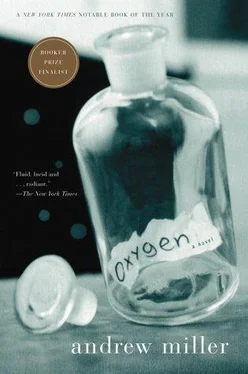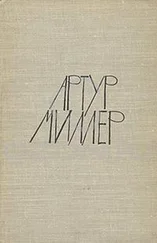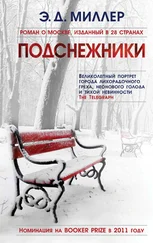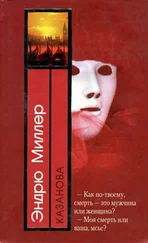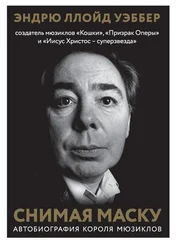László Lázár stood on the landing outside his apartment looking down over the banisters to where his neighbour, Monsieur Garbarg, was standing outside his own apartment, looking up. Garbarg held a red-and-white chequered napkin in his hand, the little banner of his interrupted dinner. At his shoulder, in the opening of the door, stood Garbarg senior, who was blind, and wore on his face his customary expression of cautious astonishment.
‘Something in the oven, messieurs,’ called László, cheerfully. ‘A little explosion.’ He shrugged, hoping to suggest that such happenings were a tiresome but amusing part of the human condition. The younger Garbarg nodded, though without returning László’s smile. They had been neighbours for fifteen years, and while knowing almost nothing of the hard facts of each other’s lives – László had no idea what Garbarg junior did for a living – they had somehow come to know each other very well, as if by a process of mutual osmosis. As soon as László had heard the shot, so bizarrely loud and like nothing in the world but a pistol shot, he had known that Garbarg would be pushing back his chair and striding to the door to await an explanation. László suspected his neighbours of harbouring dark misgivings about émigrés, even ones who had lived in the country for forty years and knew and loved the country and spoke the language as fluently as their mother tongue, more so perhaps. Of course, the Garbargs may have had other reasons to dislike him. It was hard to tell how much of his life was visible to them.
‘I am sorry, messieurs, to have disturbed your meal. Bon appétit!’’
The neighbours retired to their respective apartments. Lâszlô shut his door discreetly, careful not to make any noise that sounded like a bang, an explosion, a shot, then walked quickly down the parquet corridor, the spine of his apartment, to the dining room at the far end. Before going out to placate the Garbargs he had established that no one in the dining room was hurt. Now, uncertain whether to be amused or appalled, he entered the room like the detective in a country-house murder mystery, the kind of story, in tatty Hungarian editions, he had sometimes read as a boy.
His secretary, Kurt Engelbrecht, corn-blond hair shaved on to his elegant skull, was loosening Franklin Wylie’s collar, while Laurence stood on the other side of the table, tearful again, and dropping ash on to the carpet. Franklin, grey and aghast, but already starting to look pleased with himself, was sprawled along the divan. On the linen, next to a bowl of fresh figs, the gun lay like a piece of expensive tableware.
‘What did you hit?’ demanded László. Franklin pointed a weebling finger at the bookshelf at the end of the room, and László went to examine the damage. The bullet was embedded in the spine of a book of poetry, head height on the bookshelf. He drew the volume out and showed it to them.
‘You have shot Rilke,’ he announced. ‘The act of a fascist.’
‘Didn’t think the damn thing was loaded,’ said Franklin, lamely. Kurt was on his knees now, fanning the American with the programme notes to Madame Butterfly.
‘Some fake!’ said Laurence.
László shrugged, and carefully filled four small glasses with the Zytnia. ‘Idiot,’ he said, gently, giving Franklin his glass.
Once they had drunk, then wiped their lips with the backs of their hands – something that seemed unavoidable when drinking vodka – László asked: ‘Does anyone know how to take the bullets out?’
But it seemed that no one wished to touch the weapon now, as though it were merely resting, curled on the table next to the figs, a thing with mayhem in it. At last, muttering to himself and feeling that he was the only adult in a room of difficult children, László dropped a napkin over the gun, wrapped it carefully, and crossed the corridor to his study, a room twenty metres square that looked south towards the boulevard Edgar Quinet, and the cemetery where Sartre and de Beauvoir and the glorious Beckett lay. There were two desks in the room: the one nearer to the window was heaped with papers and scrawled-over index cards and a dozen of the black ink fibre-tip Pentels László preferred for writing. The other, a larger desk bought second-hand at a bankruptcy sale, was equipped with a computer, a fax-telephone, and a green-shaded lamp with a solid brass base. On this desk the papers were neatly stacked, and on the corner of the desk a vase of yellow freesias perfumed the room. This was where Kurt worked – typing letters, organizing the diary, fielding the telephone – ensuring the playwright could spend his time on art rather than life.
László switched on the lamp and uncovered the gun. It was a small black Beretta .32 with a snub barrel of the type designed for more covert use, a gun for spies and undercover cops and nervous housewives. He lifted it from its nest in the white damask. It was a long time since he had held a gun – a lifetime – and the thing’s mysterious energy intrigued him. It could not have weighed more than an old-fashioned silver cigarette case, or one of the bulkier Livres de Poche – Les Misérables, say – but there was no doubting the purity of its purpose, nor the power it conferred on him as he closed his fist around the cross-hatching on the grip. He could go downstairs with it now and shoot the Garbargs, the neat tap-tap of death’s index finger on the back of their necks, so that they fell face first into their soup plates. Or if his dinner party should not be a success, if the veal were spoiled or the conversation dull, it would take only a moment to massacre his guests. Then again, if the world offended him so, it might be simpler to shoot himself, as some years ago a friend of his father’s had done, a fellow doctor, leaning out of the window so as not to splash his brains on the carpet, and leaving behind no note, no statement other than his own corpse draped over the windowsill. Was it possible that anyone went through life without, for an hour or two, contemplating the thick blue line of suicide? Se donner la mort. To give oneself death. And what was the distance you had to travel between the idea and the act? Not far perhaps, not far at all when you had a machine like the Beretta and nothing more wearying to do than squeeze the trigger. As a young man, when, for obvious reasons, the idea had come to him more than once, come in its most seductive guise, as the resolution to an exhausting and insoluble inner debate, he had known he could never go through with it while his mother was still alive. But she had been dead since ’89, buried in Vienna where she had spent her final years with Uncle Ernö, and he remembered how it had indeed entered his head as he travelled to Vienna on the train for the last time, that vestigial death wish which suddenly he was free to enact, for there was no one other than her who would not survive it, who could not recover. He raised the gun and brushed his temple with the satiny blunt of the barrel, imagining (with a certain pleasure) the conversations after the funeral, when friends would stare at each other, shake their heads and say: ‘He had so much to live for! Do you know why he did it?’
The phone rang, twice, stopped, bleeped, and an edge of paper began to slide from the mouth of the fax. László rewrapped the Beretta in the napkin, hurriedly, as though he had been caught striking poses in front of the mirror. In heavy black type the words Serbian Justice were curling into view, and then – blurred but quite graphic enough – pictures he did not wish to look at but could not at first look away from. A human back, black and swollen from a beating. A man’s body sprawled in a ditch. And the inevitable corollary: a woman in a headscarf, bewildered, terrified, her hands outstretched in wretched supplication – an image that seemed emblematic of the entire century. It was not the first such material he’d received. Since the beginning of March there had been maps, photographs, statistics, horrors. He knew more or less where they came from, and felt again a flare of resentment at being solicited in this way. Political junk mail! Kurt could deal with it in the morning, file it somewhere. Had he known how to, he would have turned the fax off, sabotaged it, perhaps by pulling at the skeins of wire that led to the wall socket, but he had remained fabulously ignorant of what he still called the ‘new’ technology, and he did not want to run the risk of Kurt sulking for half a day.
Читать дальше
